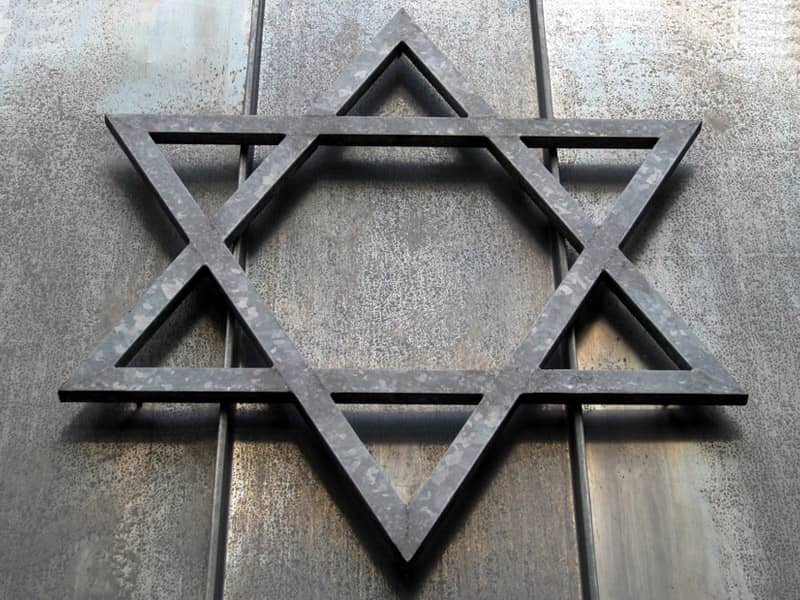The month of Tishrei is underway, the busiest month of the Jewish calendar. It begins with Rosh Hashanah and the 10 Days of Awe that end with Yom Kippur. Then comes the harvest feast of Sukkot, and eight days later Simchat Torah, when we refurl the Scroll and begin at the beginning, with Genesis.
Strictly speaking, Tishrei is not the first month of the Jewish year. Yet it is the true spiritual beginning because it's tied to the concept of teshuvah ("return"). In its strictest sense, teshuvah is a three-step process for repentance: Acknowledge what you've done, grapple with it, and confess it. If the sin was against another person, you must apologize to that person directly.
In America and parts of Western Europe, teshuvah has another urgent meaning: the appeal to secular Jews (like me) to come home. Hence the big ads in the Jewish newspapers for High Holy Day rituals to suit all newcomers: humanist, meditators and mystics, gays and lesbians, traditionalists seeking minyans (small prayer groups), feminists, and "traditional egalitarians," who conduct services in Hebrew along traditional lines, except that women are full participants.
Me, I'm an Armchair-Reform Jew. Some years, I've skipped the High Holy Days, others I've prayed and fasted alone, others still I've suited up and gone to services. Every year, wherever I find myself, I am silenced by shame. I feel unfit to pray, unfit to return.
This year, the whole season carries extra weight, since the end of Tishrei marks the beginning of my marriage to Gil: October 22, 1995. So, for me, this month will always be book-ended by relief and regret, with Rosh Hashanah at one end and that anniversary at the other. This first year of mourning is the process of learning which days will always hurt most.
Plus, I am both ahead of and off the calendar this year. I have steeped myself in regret since Gil died in January, closing myself off from most worldly obligations, pleasures, and pains so I could focus on my daughter and my memories. Now I have just started a job, just started to socialize again, and just started to feel happy to put my feet on the floor each morning. I am itching to seize my new life, whatever it will be. Yom Kippur is a drag.
The day of repentance begins with Kol Nidre-"All Vows"-a public ritual requesting that all unfulfilled vows between humans and their Creator be annulled preemptively for the coming year. But it's an old unkept promise that keeps me awake at night: the promise I made five years ago, the promise that smashed into pieces last year.
I should have stuck with a simple vow.
Maybe we are absolved of future promises because we can't know the future. I remember thinking about this around my wedding day. How can you promise something you can't really know? When Gil was diagnosed, I promised I would care for him. I promised I would do everything to protect his integrity and dignity. I wasn't sure I could. As it happens, I think I did.
By January this year, Gil was so sick and withdrawn, and I was so played out, that we couldn't be said to be married anymore. We were just two individuals, one of us dying and the other with some time yet to go, who happened to have the extraordinary good luck of understanding one another. One cold day, I got on my knees before him and said, "I want to do right by you." I meant it as a question: He was wasted to nothing, he was exhausted, and the light in his eyes was flickering. I was trying to get him to say what he wanted, to help me know how to serve him. His eyes understood, but he made me no answer.
A week after his death, I dreamt we were under the chuppah again. He stood to my right this time (in the Jewish ceremony the groom stands to the left). Our rabbi pronounced a blessing over us, and Gil turned his face away from mine. I understood we were being unmarried--yet it felt like a kind of reunion. It seemed there was, for the moment of my dream, a special ceremony for uniting the living beloved with the dead one. It gave me great hope. It gave me great confidence. The air, I recall, was still and holy, full of morning light, replete with an unbreakable, living silence, as though we were the earth's first creatures.
This year, I can't help but notice something that never occurred to me before: In English the word "return" implies a cycle: to turn again. In fact, the very word for the liturgy of the High Holy Days, the machzor, means cycle. It indicates that there isn't just a second chance but infinite chances, that these days of reckoning aren't only about righting wrongs but about recommitting ourselves constantly to our truest nature, our integrity, our core, our capacity to love and give and forgive. And be forgiven. And forgive ourselves.
Read the final installment of "Widow's Walk," House of Memory, or choose another column here:

